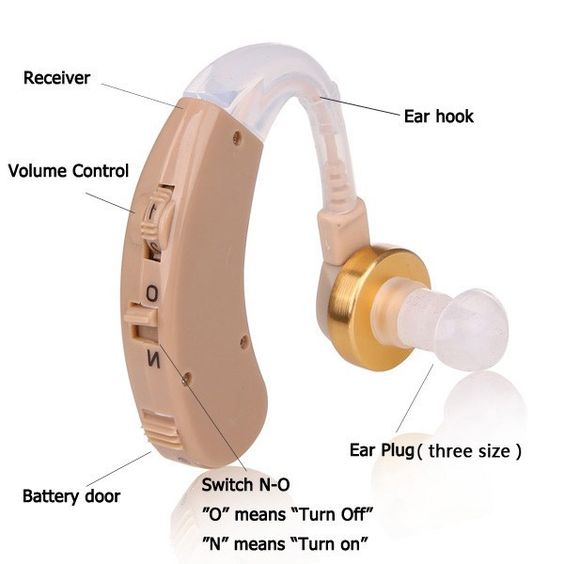Choosing the right hearing aid involves a myriad of considerations, with price being a significant factor for many. Starkey Hearing Technologies, a renowned name in the hearing aid industry, offers a range of models designed to meet diverse auditory needs and budgets. At Decibel Clinic, we aim to provide a clear understanding of Starkey hearing aid prices in 2024, helping you make an informed decision on your hearing journey.
The Factors Influencing Starkey Hearing Aid Prices
Starkey hearing aids vary in price based on several factors, including technology level, features, and customization options. Understanding these factors can help you gauge what you might expect to pay for a Starkey hearing aid and find a model that fits your needs and budget.
- Technology Level: Starkey offers different levels of technology, ranging from basic to premium. Higher-end models come with advanced features such as superior sound processing, noise reduction, and wireless connectivity, which contribute to a higher price point.
- Model and Features: Each Starkey model is designed with unique features tailored to different hearing needs. Models equipped with cutting-edge technology, such as Bluetooth connectivity, rechargeable batteries, and advanced speech processing, tend to be more expensive. Basic models with fewer features are generally more affordable.
- Customization and Fit: Custom hearing aids, which are molded specifically to fit the unique shape of your ear, usually cost more than standard behind-the-ear (BTE) or receiver-in-canal (RIC) models. Customization enhances comfort and effectiveness but can also increase the overall cost.
- Accessories and Services: Starkey hearing aids can be paired with various accessories like remote controls, TV streamers, and wireless microphones. Additionally, ongoing services such as adjustments, maintenance, and aftercare can influence the total cost of ownership.
Starkey Hearing Aid Price Range
In 2024, Starkey hearing aid prices generally fall within the following ranges, depending on the model and technology level:
- Basic Models: For those seeking fundamental hearing aid functionality without the bells and whistles, basic Starkey models are available at a starting price of around $1,500 to $2,500 per device. These models offer essential hearing amplification and basic sound processing capabilities, making them a cost-effective choice for individuals with mild to moderate hearing loss.
- Mid-Range Models: Starkey’s mid-range models, which offer enhanced features such as better sound clarity, noise reduction, and some level of wireless connectivity, typically range from $2,500 to $4,000 per device. These hearing aids are ideal for users who need more advanced technology but are not looking for the most cutting-edge features.
- Premium Models: At the high end of the spectrum, Starkey’s premium hearing aids, which include state-of-the-art technology such as real-time environmental adjustments, superior speech clarity, and comprehensive wireless connectivity, are priced between $4,000 and $6,500 per device. These models provide the most advanced hearing solutions and are designed for users with significant hearing loss or those seeking the highest level of auditory performance.
Additional Costs to Consider
While the initial price of a hearing aid is an important consideration, it’s essential to factor in additional costs that might arise over time. These can include:
- Hearing Aid Batteries: If you choose non-rechargeable models, you’ll need to budget for replacement batteries.
- Maintenance and Repairs: Regular maintenance is necessary to ensure the longevity and optimal performance of your hearing aids.
- Professional Services: Many hearing aid providers, including Decibel Clinic, offer bundled packages that include fittings, adjustments, and follow-up care. Be sure to understand what services are included in the price.
Financial Assistance and Insurance
Many people are concerned about the affordability of hearing aids. To help manage the cost, consider the following options:
- Insurance Coverage: Some health insurance plans offer partial or full coverage for hearing aids. Check with your insurance provider to understand your benefits.
- Flexible Spending Accounts (FSAs) and Health Savings Accounts (HSAs): These accounts can be used to pay for hearing aids and related expenses using pre-tax dollars.
- Financing Plans: Many hearing aid providers offer financing options to spread the cost over time, making it easier to afford the hearing aids you need.
Conclusion
Starkey hearing aids represent a significant investment in your auditory health and overall quality of life. Understanding the range of prices and what factors contribute to the cost can help you make a well-informed decision. At Decibel Clinic, we are committed to providing you with comprehensive information and personalized assistance to ensure you find the right hearing aid solution that fits both your needs and your budget.
For detailed pricing and personalized recommendations, contact Decibel Clinic today. Our team of experts is here to guide you through the process and help you achieve the best possible hearing experience.





Comments